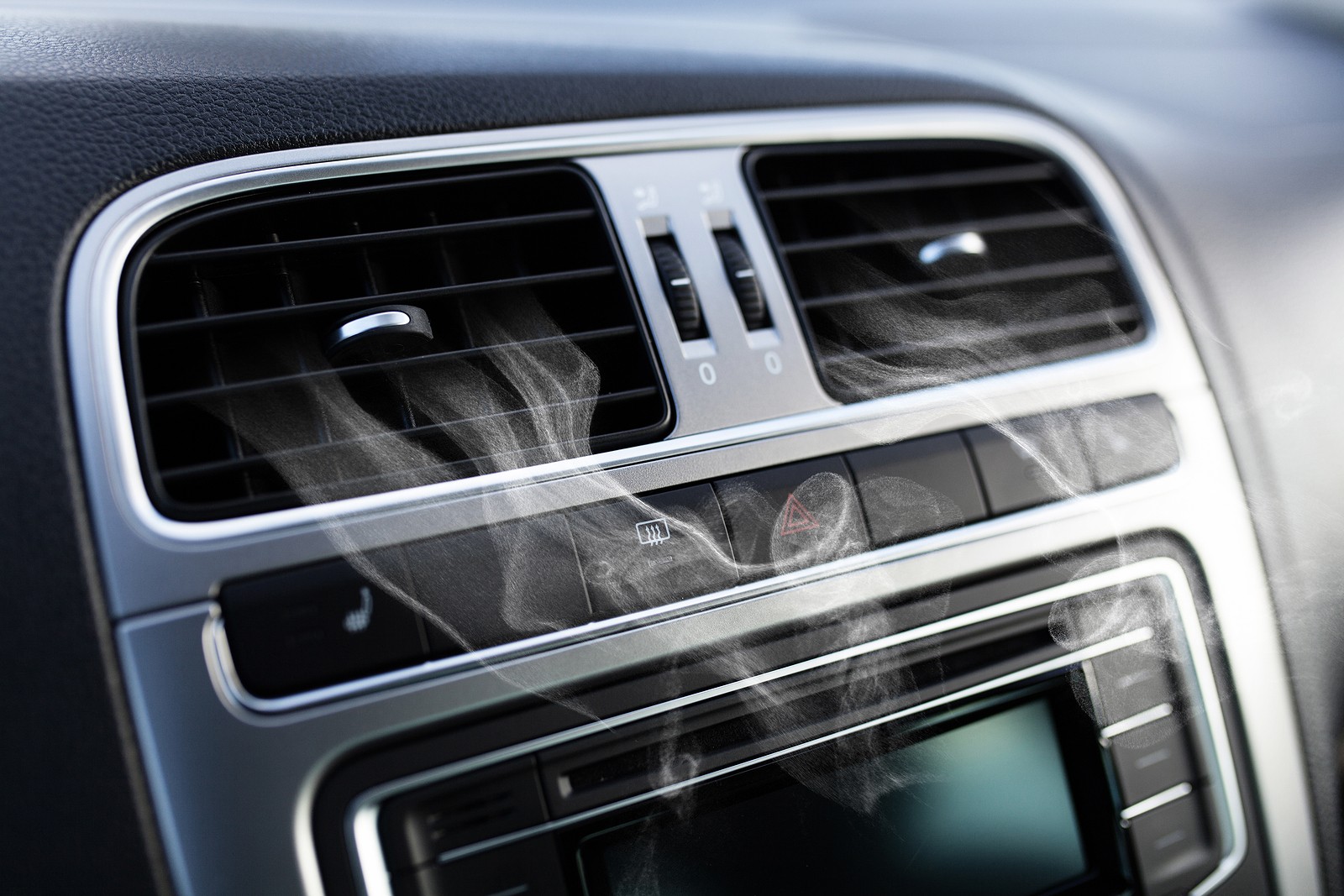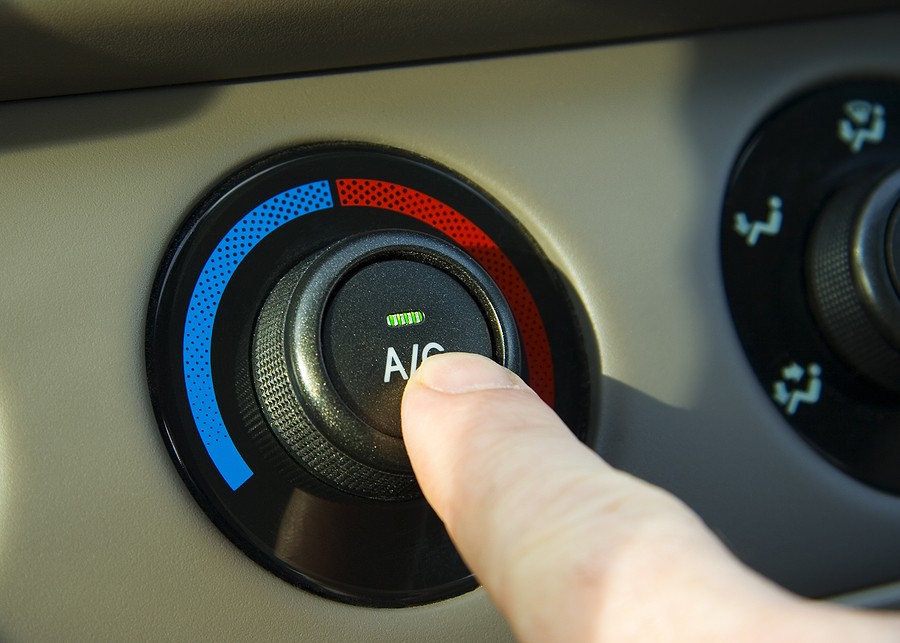If you're searching for “how to know if a car AC compressor is bad,” these are the seven most common signs:
- Reduction in cooling performance
- Strange noises
- Added engine loads
- Difficulties engaging the AC clutch
- Visual issues
- Weird odors
- Troubles with the cabin pressure
Your vehicle's air conditioning, or it's known as the AC, is really important. If you live in areas, you rely heavily on it to avoid the uncomfortable extreme summer heat. It's important that all the components within the cooling system and the AC work properly so you get the required and preferred temperature in your vehicle, making your driving experience as comfortable as possible.
The AC contains many components, and one of the main ones is the compressor. It is significant, and when it goes bad, it prevents the entire system from working and will end up with a vehicle that does not cool itself.
As a car owner, you must understand what needs to be done to protect the AC compressor and ensure it's not failing. You also need to know when this compressor is about to fail so you can catch and fix it before you need a complete replacement.
This article highlights the most important symptoms indicating A failing compressor. These symptoms might help you identify the issue before it gets complicated but they could also mean a completely failing component. Let's read on for more details and answer the question, “How do we know if a car AC compressor is bad?”
How do you know if a car AC compressor is bad?
When the AC compressor goes bad, you'll notice some minor symptoms that could evolve. The more you ignore these symptoms, the harder it is for you to fix the problem without replacing major components.
The list below highlights the seven most important symptoms indicating a failing AC compressor. It would be best to address these symptoms immediately without wasting time or minutes because it will lead to significant issues you cannot fix without spending so much money.
1- Reduction in cooling performance
The first and most obvious symptom indicating a failing AC compressor is when you notice a reduction in the cooling performance. Whenever you try to turn on the AC, if you've ever noticed that it's not blowing cold air and not functioning properly, it might be a problem related to a failed AC compressor.
Of course, when the cooling system does not perform properly, it doesn't immediately mean you have to replace the AC compressor. It could be a problem with other components you need to check first because they might be less expensive to fix.
2- Strange noises
As a rule of thumb, automotive experts recommend never ignoring any weird noises from your vehicle. These noises could indicate that something is internally happening you need to address before things get very complicated.
That's why one of the things that you might want to monitor is the noises coming from the front of the engine where the AC is connected. When the AC compressor fails, it will typically start squealing or loud grinding noises. You need to confirm what's the root copper before making any repairs.

3- Added engine loads
When the AC compressor is not performing properly, it might add more stress to your engine. That's why you'll notice that the engine is not operating as it should and might not produce the required energy you need.
When the engine is not performing properly, it might lead to engine overheating and another problem that could damage the engine completely. Therefore, you might have started with an AC compressor issue but might end up with other problems requiring significant repairs.
4- Difficulties engaging the AC clutch
Your vehicle's AC compressor contains an important component, which is an electromagnetic device. This component is referred to as the AC clutch. When the AC compressor fails, it might lead to issues with the AC clutch, and that's why if you take a closer look at that AC compressor and realize that when the engine is running, the compressor clutch is not engaging, it could be a problem related to the compressor itself.
Again, while the issue might be significantly related to the compressor, it could also mean that the clutch needs to be replaced. Therefore, you must note this issue, but then you need to check with the mechanic before replacing any components to confirm which one is causing it.

5- Visual issues
Another thing you could do as a car owner is to perform a visual inspection. You don't need to be an expert to determine that the compressor is in bad shape because it's easy. Typically, you'll see some refrigerant or potentially other fluids leaking around the compressor, indicating internal troubles.
A leaking compressor is never a good thing because it means that the compressor is reaching significant stages, which means that if you cannot fix it now, the complete damage is very soon.
6- Weird odors
In addition to the strange noises, you might notice the vehicle has weird odors. This might mean many things, and depending on what type of odor you're dealing with, it could indicate different internal problems.
One of those odors that could indicate A failing compressor is when you notice something like a musty or potentially foul smell. This is related to the compressor, especially if you confirm that the smell is coming from the location of the compressor.

7- Troubles with the cabin pressure
Finally, one of the things that a failing compressor might result in is trouble with the pressure balance in your car. You'll notice this every time you try to open and close the windows or the doors and realize that there is a big difference in the pressure that might lead to issues with the vehicle's comfort.
Therefore, you must consult your mechanic immediately whenever you notice these symptoms. He should have the right tools and equipment to help him identify the root culprit causing your issue. He will then decide whether it's worth replacing the compressor or selling your vehicle instead of wasting your time and money, especially if there are major problems related to the engine or that transmission.
How much does it cost to replace an AC compressor?
Replacing the AC compressor is not a cheap repair, and it could cost you up to $1100, if not more, depending on your vehicle type and condition. Typically, you will need to pay about $850 for parts and the rest for labor costs, which could differ depending on where you get the vehicle fixed.
You must get the vehicle fixed at the right location and never try to save on labor costs when replacing such major components. The last thing you want to deal with is introducing problems by mistakes just because you had the wrong mechanic who doesn't have any previous experience performing the repair for you.
Before you decide on the AC compressor, it is always recommended that you comprehensively analyze whether it's worth this repair. In other words, if you feel that the repair cost will cost you about 75% or more than the real vehicle's value, it's not worth your investment, and you should consider selling this vehicle and purchasing a better one.

How do you know if a car AC compressor is bad? Final Thoughts
The compressor is a significant component in your AC system; without it, it will not produce any cold air and will end up with an extremely hot vehicle interior. Every driver needs to maintain a close eye on any potential symptoms indicating A failing compressor to address them immediately before it fails.
This article highlighted the seven most important symptoms that could help you answer the question “How to know if a car AC compressor is bad?” Some of these symptoms include strange noises and smells, difficulties engaging the AC clutch, and other visual damages.
As we mentioned earlier, if you notice any of these symptoms, you need to consult your mechanic and get it fixed immediately. The sooner you address these problems, the cheaper repair costs.
If you're interested in similar posts, we highly encourage you to visit our blog by clicking here!



